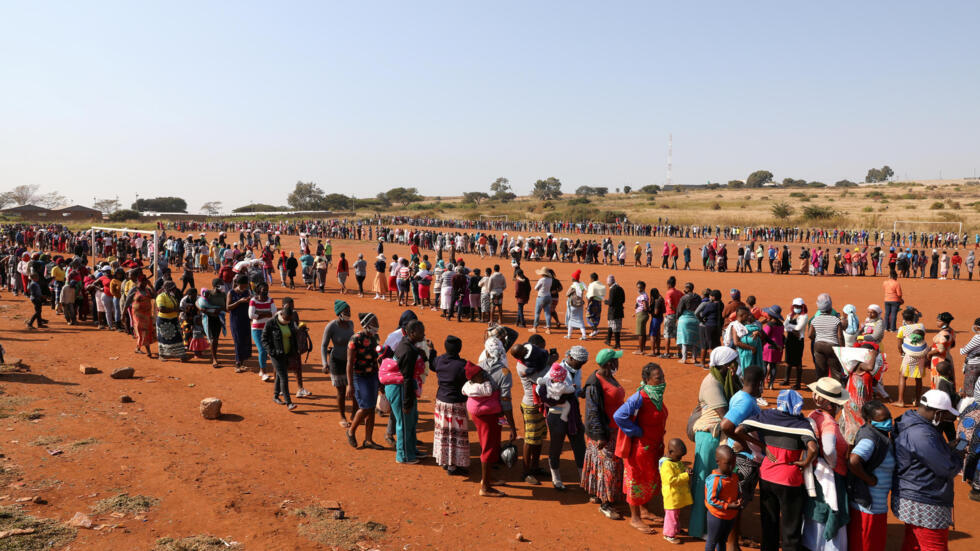Surge in Covid-19 cases in Africa after lockdowns lifted in some countries
The number of people on the African continent infected with Covid-19 has reached 95,201, according to the Africa Centres for Disease Control and Prevention, as the number of cases to continue to rise. Governments feeling the strain of the poorest felt the need to lift lockdowns this month, recognizing that this could contribute to rising case numbers.
Issued on:

Nearly 3,000 people have died.
In South Africa alone, where a lockdown is still taking place, scientists have estimated through their modelling predictions that up to 40,000 people could die in the country over the next few months.
Some estimate that the lockdown has been extremely severe, including a ban on cigarettes and alcohol. Some measures have already been lifted this month, and children are expected to go back to school in June.
Minister of Health Dr. Zweli Mkhize said that the rate of infection would need to slow down before all aspects of the lockdown are lifted.
On Thursday, Mkhize said the country lost its first newborn to Covid-19.
"Sadly we have recorded the first neonatal mortality related to Covid-19. The baby was two days old and was born prematurely," said South Africa's Health Minister Dr Zweli Mkhize.
"The baby had lung difficulties which required ventilation support immediately after birth,” added.
The country's death toll now stands at 339.
South Africa is the worst hit with the most number of cases, at 18,003, but north African countries have had a higher death toll-- Egypt has had 680 and Algeria has 568 fatalities.
West Africa
While European officials have warned about the second wave of infections after lockdown restrictions are lifted, African leaders have had to weigh the economic and social aspects of lockdowns. Preventing people from working has also created greater food insecurity issues, as many, especially in large cities such as Lagos, Nigeria, live hand-to-mouth.
Numbers of infected have grown since the Nigerian lockdown was lifted—Nigeria has registered 6,677 cases and 200 deaths.
Senegal experienced a 30 percent surge in cases just one day after restrictions were lifted on 11 May. It has registered 2,812 cases, with 30 deaths.
Ghana also saw a rise in cases after the stay in place order was lifted on 10 April, but President Nana Okufo-Addo noted in part that this was a necessity in order to prevent the country’s poorest from going hungry. It now has 6,269 cases, up from 408 cases on 10 April.
In an address on Wednesday, UN Secretary General Antonio Guterres called for international action to strengthen Africa’s health systems to accommodate for the big surge in cases that scientists have predicted are coming.
“Ending the pandemic in Africa is essential for ending it across the world,” said Guterres.
Daily newsletterReceive essential international news every morning
Subscribe